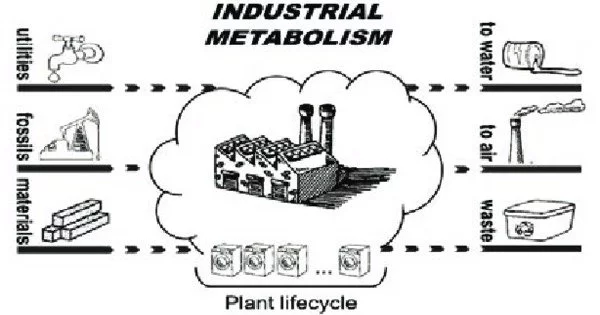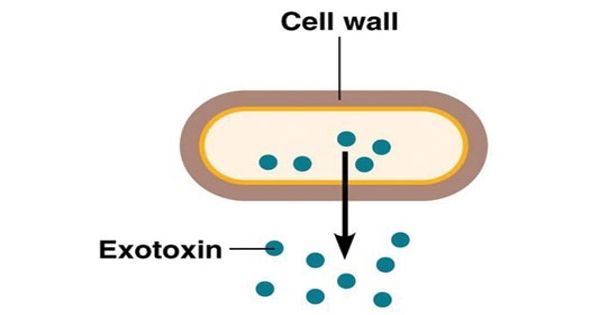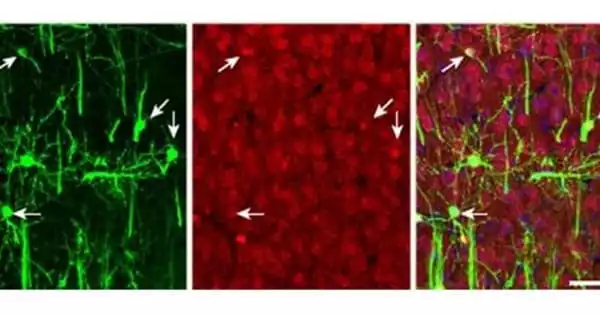The processes to which materials and components are subjected in industrial ecosystems are referred to as industrial metabolism. It is similar to the metabolic processes that occur in biological systems with food and nutrients. Industrial metabolism, like biological metabolism, can be addressed at several levels. At the molecular level, substances are chemically changed to give desired materials or to generate energy, which is where green chemistry comes into play. Individual unit processes in a factory, the factory level, the industrial ecosystem level, and even globally can all be addressed by industrial metabolism.
The term “industrial metabolism” refers to the material and energy turnover of industrial systems. In analogy to biological metabolism, Robert Ayres defined it as “the entire integrated collection of physical processes that convert raw materials and energy, plus labor, into finished products and wastes…”
The term “metabolism” comes from the Greek word for “change or transformation.” In biology, the concept describes the cumulative effect of numerous biochemical reactions that convert the materials in a living cell to provide for its growth and maintenance. While the concept of metabolism is widely accepted at the cellular and individual organism levels, its application to larger systems of living organisms or human societies is still in its early stages.
The term “industrial metabolism” refers to the idea that industrial economies, like biological organisms or natural ecosystems, can be viewed as material transformation systems with distinct metabolic pathways that evolve over time. Industrial metabolism offers a useful perspective for the study of collective human behavior and its effect on the materials cycles that comprise the workings of the natural environment.
In contrast to the biological concept of metabolism, which is used to describe the entire set of chemical reactions that occur in a cell in order for it to maintain its functions and reproduce itself, the concept of industrial metabolism describes the chemical reactions, transport processes, and manufacturing activities that occur in industry.
Industrial metabolism assumes a connection between various industrial activities by viewing them as parts of a larger system, such as a material cycle or a commodity supply chain. System scientists, for example, in industrial ecology, use the concept as a paradigm to study the flow of materials or energy through the industrial system in order to better understand supply chains, emission sources and causes, and the connections between the industrial and the larger socio-technological system.
Industrial metabolism is a subsystem of anthropogenic or socioeconomic metabolism, which also includes non-industrial human activities in households or the public sector. The wastes produced by these systems are a significant difference between industrial metabolism as it is currently practiced and natural metabolic processes. Natural ecosystems have evolved to the point where true wastes are almost nonexistent. For example, even plant parts that remain after biodegradation of plant materials form soil humus, which improves the soil conditions in which plants grow.
















